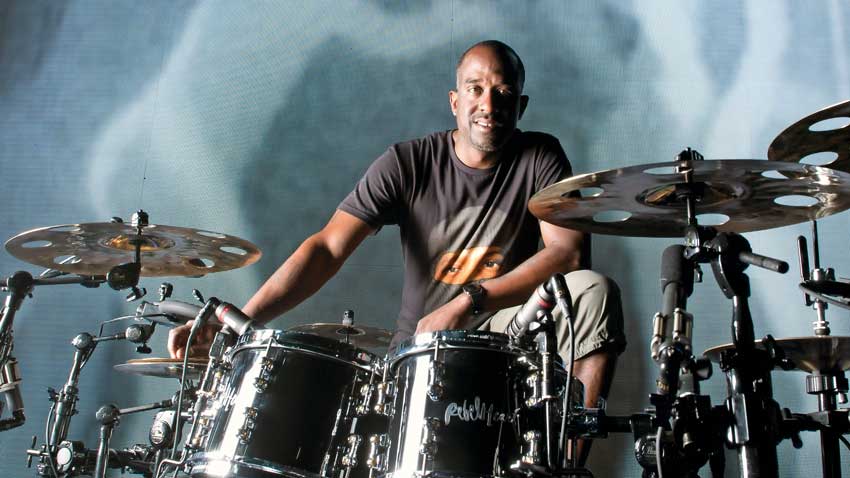
Brian Frasier-Moore
There’s no denying that Brian Frasier-Moore is one of the most successful session players in the business. He’s a drummer whose credits include 10 years with Christina Aguilera, from the tour to support her debut album up to Bionic in 2010, playing at the 2012 Super Bowl to a global audience of around 120 million people with Madonna, two massive world tours with Janet Jackson, and playing for Justin Timberlake on The 20/20 Experience World Tour that made Timberlake the top-grossing solo artist of 2014.
On top of all that, he has worked with a host of the biggest names in contemporary r’n’b including the likes of Babyface, Aaliyah, Usher, Patti LaBelle, Ginuine, Toni Braxton, the Backstreet Boys, and The Whitehead Brothers. Now Moore is out on the road doing his third world tour with Madonna when Rhythm catches up with him. It’s been an extraordinary rise through the ranks for a player who started out drumming at the age of five in the church where his father was pastor in Philadelphia, Pennsylvania. Session legend Vinnie Colaiuta was a key formative influence, and while he’s famed for stadium-filling pop and r’n’b shows, there’s still a place in Moore’s heart for fusion.
Here he tells us about those fusion influences, how to get the big pop gigs, dealing with nerves and making mistakes…
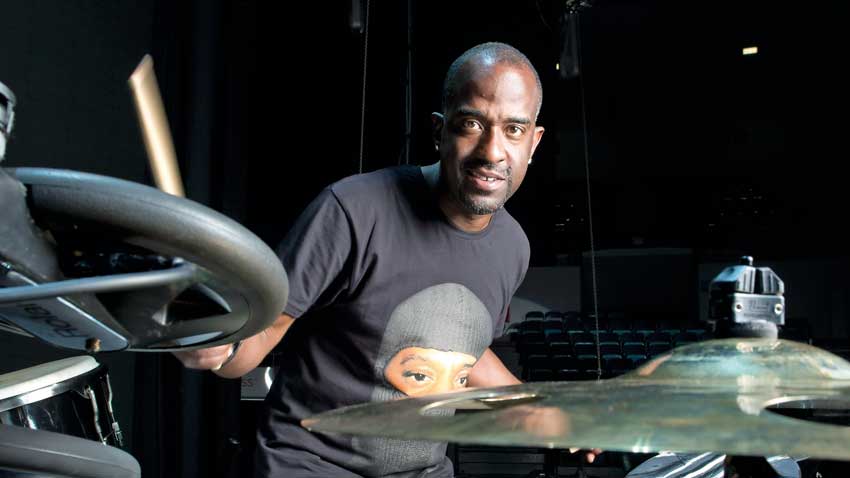
Brian on… his influences
“My influences and my job are totally different,” he says. “My job is what it is, but my influences are Marcus Miller, Dave Weckl, Herbie Hancock.” That side of his playing is due to get an airing soon as he has his first solo album in the works. “Through work and what people see me do, they don’t get to see that,” he says of his fusion side. “It goes along with being musical, losing yourself in the music. You know that feeling when you’re playing a song and you’re like, ‘What am I going to do? What’s coming up next?’ And then you know that feeling when you play a song and you’re like, ‘I’m just so lost in it! What happened?’ That is where this music is.”
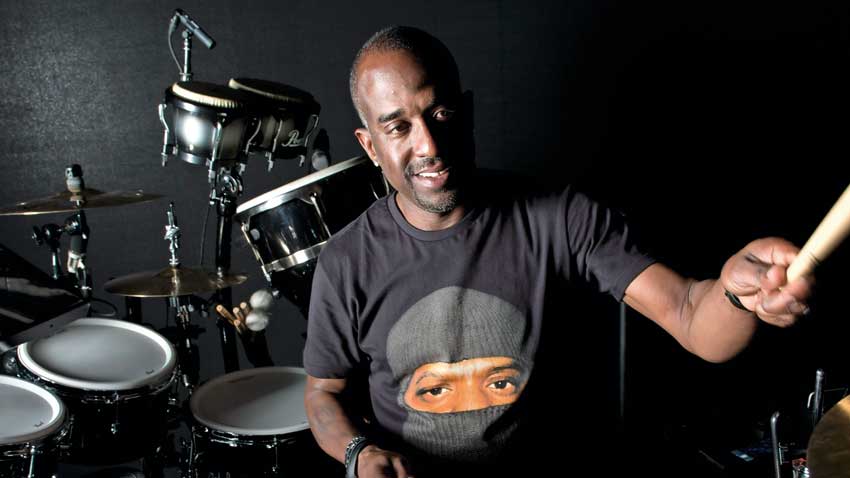
Brian on… getting the gig
“If you want to get a call for something that’s current, then listen to the radio. People know all of these songs but they don’t emulate the song, the beat, the groove, the mood of it to the fullest. Most of the time they play what they feel should be in the song. This right there will get you a call really quick – play the beats of the song. Put your little thing in there when you can, but I’ve sat in front of countless musical directors and artists and people want what the record is. Sometimes people get confused saying, ‘Do I just play it plain like the record?’ Well, you play what’s on the record and then you add your thing on top of it. Like you make banana pudding, then you put the cookies on top of it. This is the smart method to getting a call.”
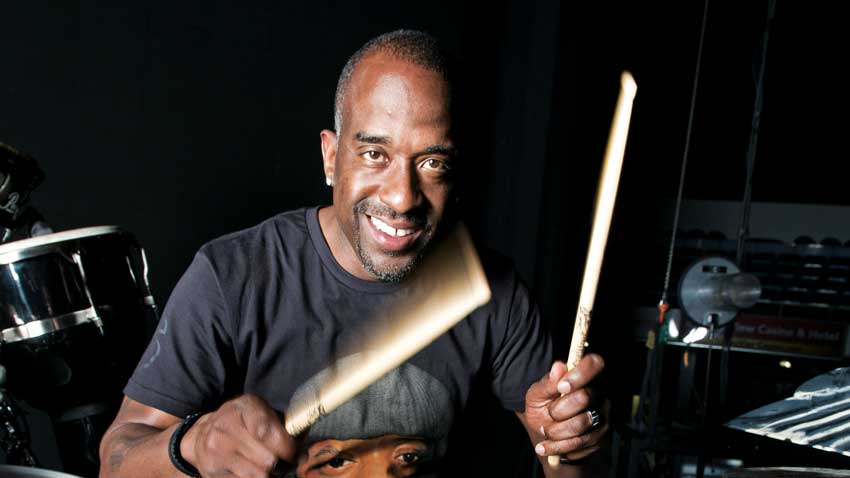
Brian on… controlling your fear for the big gigs
“That pressure is crazy! That pressure will have you rehearsing all week and you’ve got it down pat, then you get to the session like, ‘I don’t have it!’ I reach down inside and I say, ‘Thank you God because only you can put me in a position like this. That’s first and foremost. And second, I start thinking about how good of a position I’m in and how many players around the world would love to be in this position. I’m blessed to be in this position so nerves, I’m going to put you down right now because there are a lot of things I need to do. I don’t really have time for you because I need to capitalise on this situation that God blessed me to be in.”
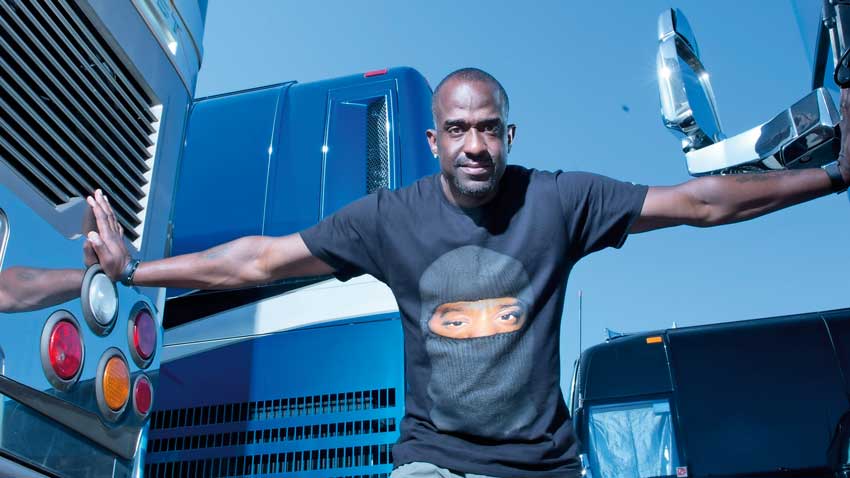
Brian on… knowing what the artist wants from the drummer
“Sometimes you’ll come in and the artist will say, ‘Give me something right here.’ Okay… I don’t know exactly what that means. A lot of clients in my consultations, what I instil in them is to reach inside your groove, know what you’re playing. If an artist says, ‘Give me something,’ check out what’s going on in the track at that particular point and latch onto that because it’s always easier to make your fill very close to what the track is, versus you just do a fill you’ve been practising in your basement for six months and it doesn’t go anywhere and it throws everyone off. This is the difference between playing something smart and playing something not smart.”
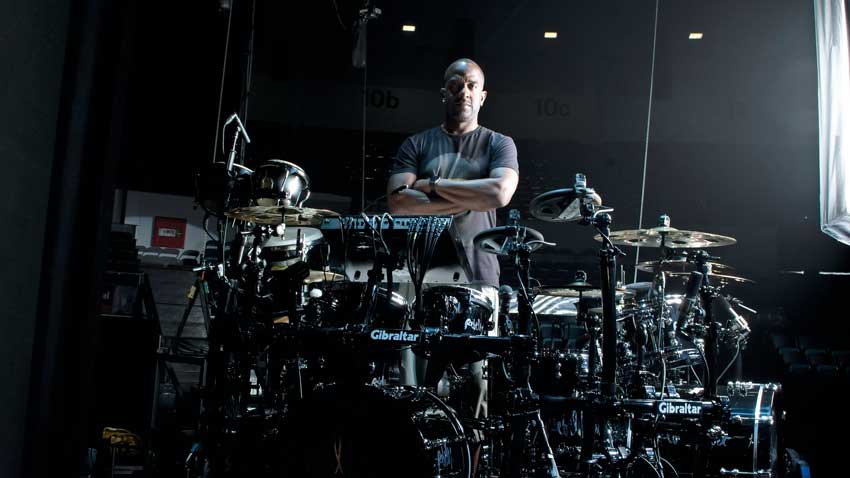
Brian on… why so many pop players have church backgrounds
“Every genre has its speciality. I think with the church players, how we play in church and thelive shows for these pop artists, they kind of go hand-in-hand because in church you have to give emotion, you have to have dynamics, your tempo has to be good, you have to be ready for the unexpected. This is why a lot of church playersdo well in pop or r’n’b, it’s the same type of thing, especially with a lot of the musical directors that are controlling these gigs now; most of these guys are from church. Naturally they will put their influences and expression on these gigs which are very familiar to the church players.”

Brian on… preparation
“There is what I call the meat, which is what the beats are doing. Like in an eight-bar phrase the snare doesn’t hit on bar seven, that’s in my brain from the record, so for the meat part I get a composition book and I chart out every song, every section, and that’s what I go over before I get in rehearsals because I don’t have any arrangements to practice. When I get into rehearsal all the meatof all the songs is already taken care of, it’s already in my brain. I know everything in the track, I know what the bass is doing, the keyboards, the vocals,I know everything about the original track sowhen I get in rehearsal the only things that are going to differ are intros, outros, segues, thingslike that.”

Brian on… the artist's input
“Pretty much all the artists I’ve worked with have a hands-on approach, whether it’s Babyface, Patti LaBelle, it doesn’t matter who it is. Some people are more open to input from the band than others. With Justin Timberlake, he’s very open. He’ll come in and say, ‘Brian, I was listening to Phil Collins in the car, it’s this tom fill he does.’ I’m like, ‘What do you think about this?’ He’s like, ‘Ah man! That’s crazy! But what if you did this?’ It’s a good circle of energy. Some artists come in and they have it pretty much set in their mind what they want to hear, so it depends but all of them are hands-on. I’ve been in rehearsals sometimes with Adam Blackstone, he’s the music director for Justin and we’ve worked with a lot of other artists, where he’ll say, ‘This is the arrangement, in the intro we’ll do this, in the chorus we’ll do this. All right, let’s run it, but I need to record it right now.’ We’re like, ‘Man, you’re out of your mind, we haven’t even played it yet!’ So sometimes it moves very fast and you have to pay attention to detail. You have to make sure that your art and your level of execution is high because others are going to come at your neck.”
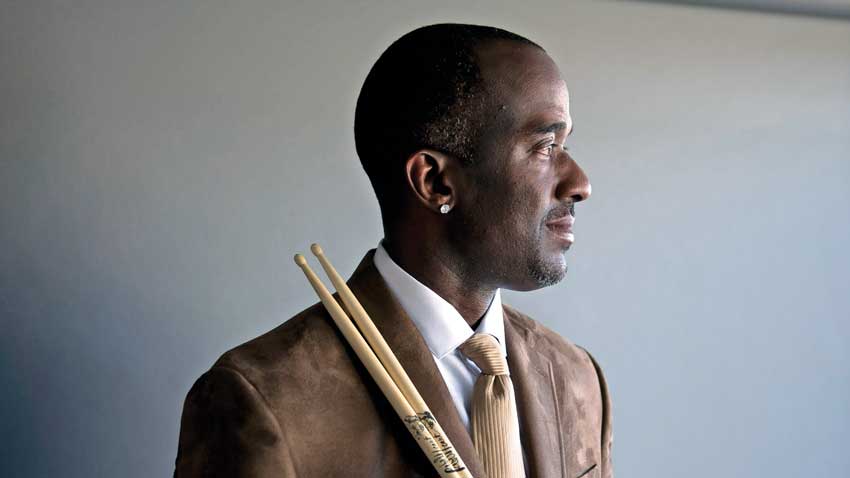
Brian on… being human and making mistakes
“That’s what you want. You’re always your biggest critic, so for yourself you want to be perfect and you want to be on all the time but we weren’t made that way as humans. That’s the biggest fight with yourself, with myself – oh man, I messed up! The artists I work for, sometimes they mess up. The music directors that hire me, I hear them mess up all the time. People need to know it’s okay to mess up. Just have control over it. A lot of times with my students I make them do riffs, you’ll do a two-bar phrase and you’ll play something, then you go to the next two bars and play something different, then the next two bars and play something different, until you mess up. When you mess up, you go back and repeat it because from making mistakes comes the creativity. This becomes the beauty of it. Just so long as you don’t lose your head and go completely off the ranch when you mess up, this can be a beautiful thing. Messing up can be another opportunity for you to create something new.”
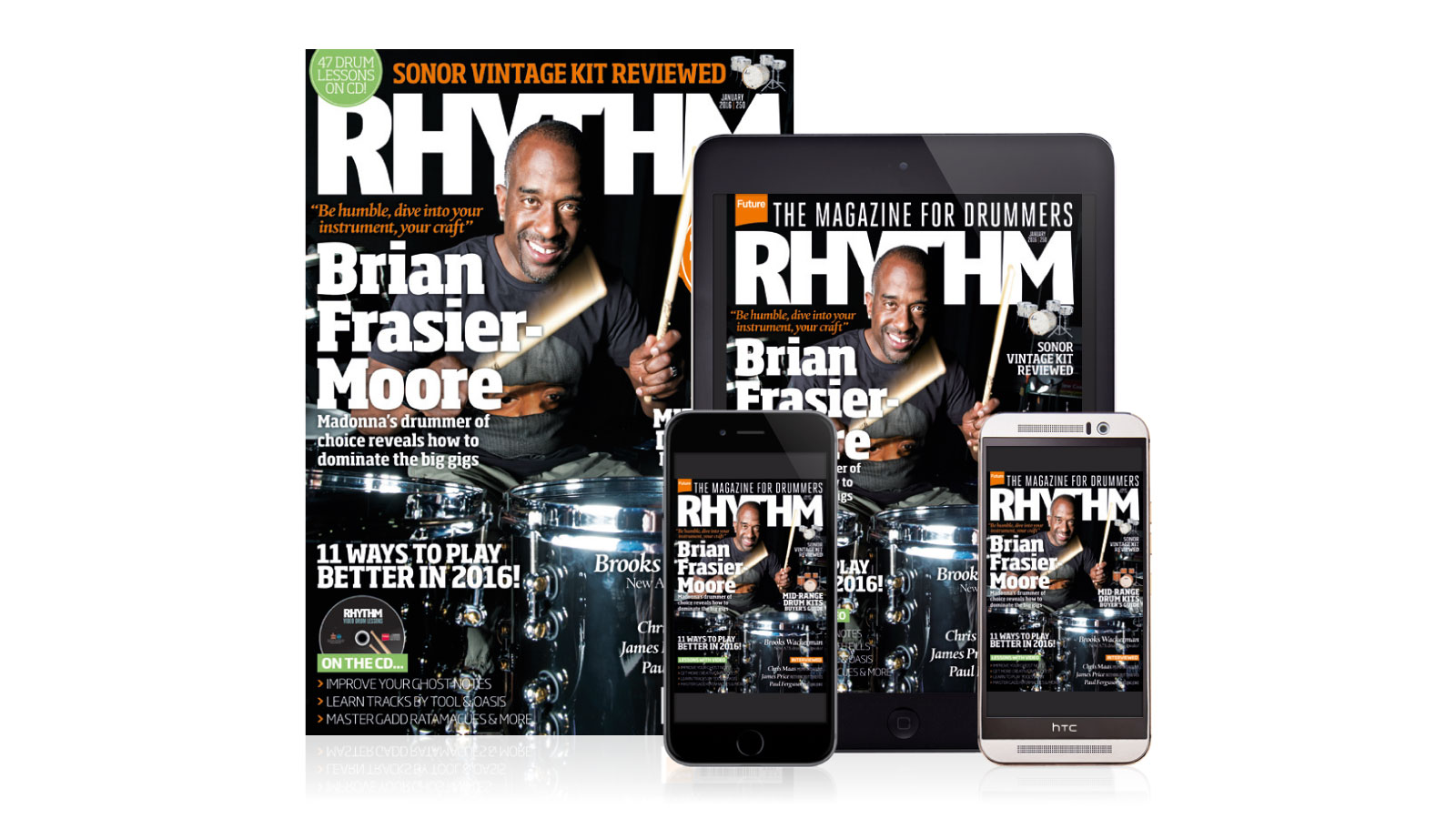
Want more?
Read the full interview with Madonna drummer Brian Frasier-Moore in the January issue of Rhythm, available here!